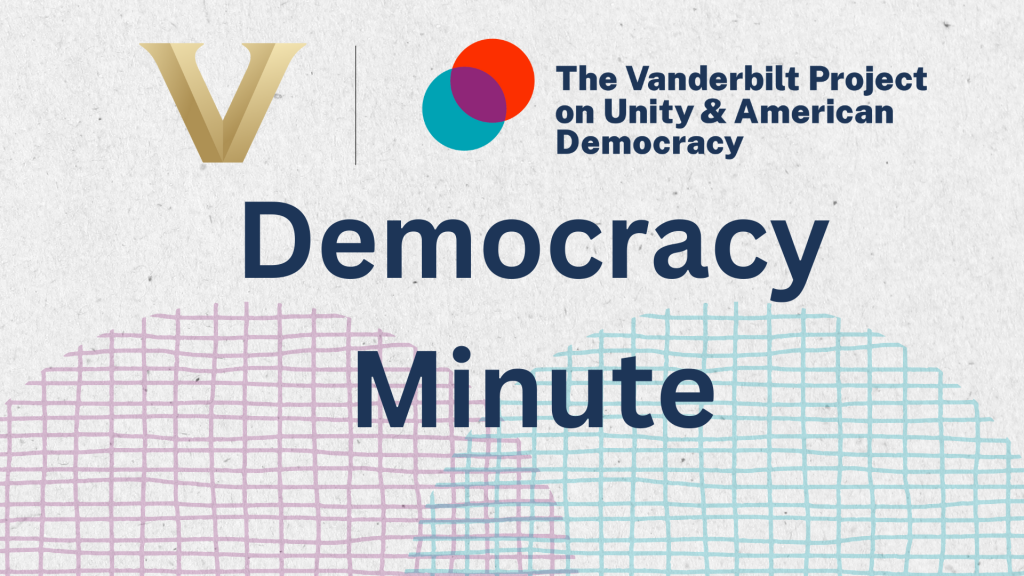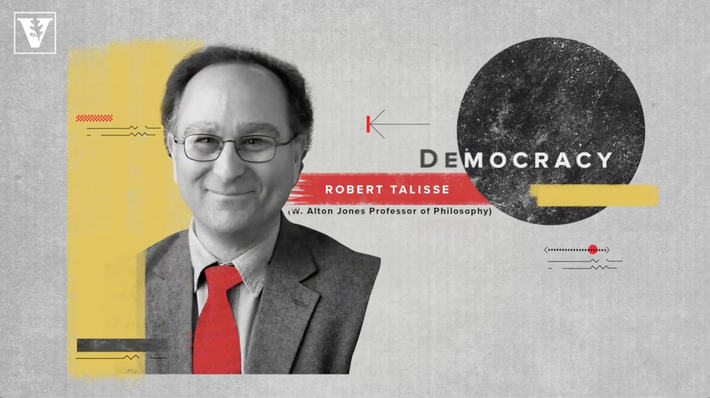
Democracy Minute explains topics and constructs important to civil discourse and a healthy democracy. Produced by The Vanderbilt Project on Unity & American Democracy, each episode challenges assumptions and unpacks misconceptions about civic issues through facts and evidence. Explore the collection.
Segments are written and presented by Vanderbilt University professors who bring their expertise to this topic from a range of fields including history, communications, political science, and philosophy.
FREE PBS LearningMedia educator resources for grades 9-12. View standards
This collection includes the following media and education resources:
Effective Lawmaking
Learn how changes in congressional procedure in the 1990s changed the way our legislation is written.
Overdoing Democracy
Consider if politics have oversaturated the lives of Americans. Professor Robert Talisse argues that political affiliation is often seen as a person’s defining characteristic in the United States.

Polls and Public Opinion
Learn why election polling has been inaccurate, and how different kinds of polling might still help elected officials understand the desires of their electorate.
Straw Man Arguments
Learn about “straw man” arguments and how to identify them. Professor Scott Aikin explains how these debates misrepresent someone’s argument, creating a “straw man” response that does not represent the original idea and denigrates the original stance.
The Development of Social Security Numbers
American citizens are eligible to receive a Social Security number and have been able to do so since 1936. How has this ubiquitous identifier evolved from something Americans proudly displayed to something kept private?
The Republic of the Inattentive
Learn how brand recognition helps candidates target politically-inattentive voters. Professor Eunji Kim argues the deeper division in American politics is not between Democrats and Republicans, but rather between those who follow politics and those who do not.
The State of the Union’s Evolution
The style and substance of the State of the Union has evolved greatly since President George Washington’s first address in 1790. The president’s words matter, but as much as politics is about issues it is also about connections with voters, especially as the speech has become a televised event. The weight of this is especially true in the wake of the January 6, 2021 attacks as explained in this segment, which was produced around that time.
Credits:
Vanderbilt University:
Randolph Infinger, Senior Video Producer
Brian Smokler, Manager of Instructional Systems
Nashville Public Television:
Samantha Andrews, Director of Education and Engagement
Caroline Budnick, PBS LearningMedia Specialist
About PBS LearningMedia:
PBS LearningMedia offers FREE educational resources for PreK–12 educators and students.
Our goal is to enhance educator practice and equitable student learning through educational resources that are:
- Available to teachers and students at no cost for educational use.
- Relevant, accessible, and trustworthy.
- Intentionally designed to supplement classroom instruction.
- Representative of diverse perspectives and communities, including underrepresented and marginalized student populations.
- Responsive to needs, trends, and current events.
- Designed to promote and support effective practices in teaching and learning with digital media.
Sign up now: pbslearningmedia.org
